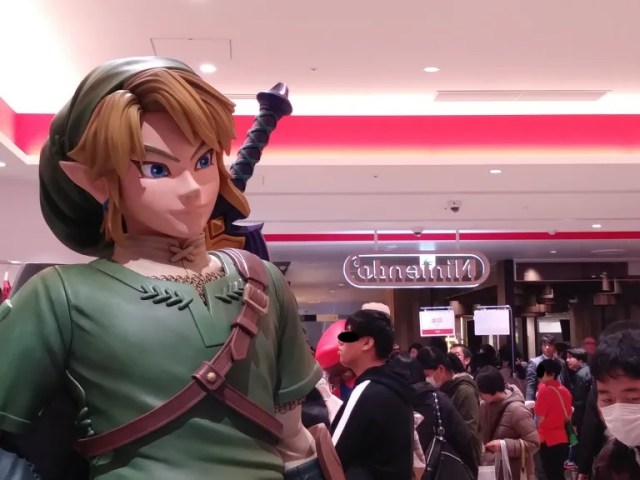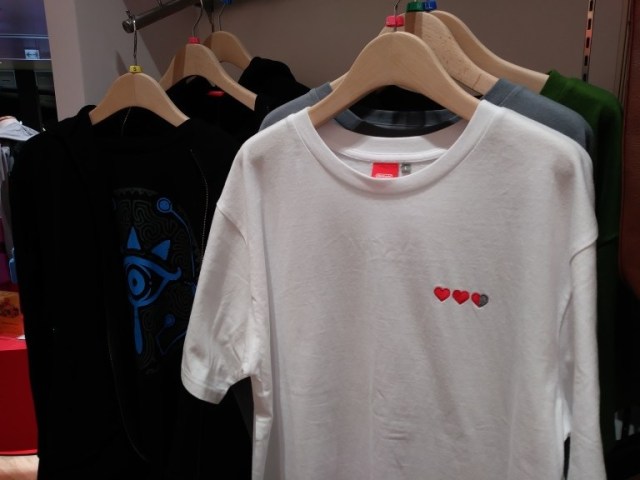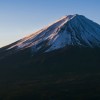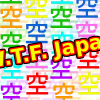
Zelda creator Shigeru Miyamoto to serve as producer.
After the success of this year’s animated Super Mario Bros. Movie, it was inevitable that we were going to get another big-screen adaptation of a Nintendo franchise. The only question was which one. Some people predicted it would be Metroid, which already has parallels with the atmosphere of space action thrillers like Aliens, or maybe a cozy, low-stakes movie visit to the Animal Crossing community would be next.
But instead, Nintendo is pulling out the biggest arrow it has in its quiver after Mario, and has announced that a Legend of Zelda movie is on the way.
It’s the obvious choice, seeing as how the Super Mario Bros. Movie’s US$1.3 billion-plus in box office revenue shows there’s huge demand for a Nintendo movie done in a fan-pleasing style. The big surprise about the Legend of Zelda movie, though, is that it’s going to be live-action, not animated.
As with any movie adaptation of a pre-existing media franchise, one of the big questions is how much involvement the original-medium creators will have. Like he was for the Super Mario Bros. Movie, Zelda creator Shigeru Miyamoto will be a producer on the film, and Nintendo says it will be providing more than 50 percent of the movie’s financing.
▼ Miyamoto once again commandeered the Nintendo of Japan Twitter account to break the news.
This is Miyamoto. I have been working on the live-action film of The Legend of Zelda for many years now with Avi Arad-san, who has produced many mega hit films. [1]
— 任天堂株式会社 (@Nintendo) November 7, 2023
As for the non-Nintendo parties involved, Avi Arad also serves as a producer. Arad’s producing/executive producing resume contains a slew of Marvel adaptations, including every Spider-Man movie since Spider-Man 2, 2003’s Daredevil, 2008’s Iron Man, and 2022’S Morbius. As far as projects based on video games or Japanese IPs, Arad was a producer for the live-action Uncharted and Ghost in the Shell, as well as the Double Dragon American T.V. cartoon back in 1993. The live-action Legend of Zelda already has a director too: Wes Ball, who directed all three Maze Runner movies and is helming the upcoming Kingdom of the Planet of the Apes, so feel free to start working on your “The Legend of Zelda: Tears of the Kingdom of the Planet of the Apes” fan art now.
Also part of the project is Sony. Though Nintendo and Sony are rivals within the video game industry, Sony Pictures Entertainment will be co-financing and distributing the live-action Zelda.
No release window has been mentioned, with Miyamoto simply saying “It will take time until its completion, but I hope you look forward to seeing it.”
▼ Will live-action Link have a visible life meter like these T-shirts at the Nintendo Tokyo store? Only time will tell.
For hard-core fans of video games or Japan-originated entertainment franchises neither Arad’s nor Ball’s involvement is likely to be a major selling point. However, Super Mario Bros. Movie producer Chris Meledandri and directors Aaron Horvath and Michael Jelenic didn’t have any prior experience adapting video games either, and critics and audiences alike were plenty pleased with how that movie turned out.
The switch to live-action does add a degree of difficulty and uncertainty to the Zelda movie, though. The video game maker was still more or less within its realm of established expertise with the animated Super Mario Bros. Movie (it’s essentially one long CG cutscene), making it easier to step in and offer assistance if the other involved parties aren’t quite getting the details right. It might not be as simple, though, for Nintendo’s talented video game artists to transfer their knowledge to live-action, which would in turn make the Zelda movie more reliant on its non-Nintendo partners.
That said, with Nintendo holding over 50 percent of the purse strings, they’ll ostensibly have the biggest say in the big decisions, and with the Super Mario Bros. Movie owing much of its success to keeping things simple and not contradicting the source material, odds are we can expect a similar strategy with Zelda.
Source: Nintendo, Twitter/@Nintendo
Photos ©SoraNews24
● Want to hear about SoraNews24’s latest articles as soon as they’re published? Follow us on Facebook and Twitter!
Follow Casey on Twitter, where A Link to the Past’s ending music’s opening strings section is one of his favorite 16-bit sounds.


 New voice of Super Mario for CG movie is Chris Pratt, Donkey Kong also will appear
New voice of Super Mario for CG movie is Chris Pratt, Donkey Kong also will appear Super Mario movie delayed, Nintendo posts strange apology
Super Mario movie delayed, Nintendo posts strange apology Super Mario voice actor Charles Martinet “stepping away” from voicing Nintendo characters
Super Mario voice actor Charles Martinet “stepping away” from voicing Nintendo characters Nintendo aims for 3D animation of its characters to enter film business
Nintendo aims for 3D animation of its characters to enter film business The reason why Nintendo’s Super Mario smartphone game won’t have in-app purchases is brilliant
The reason why Nintendo’s Super Mario smartphone game won’t have in-app purchases is brilliant McDonald’s Japan’s new pancake pie is a taste sensation
McDonald’s Japan’s new pancake pie is a taste sensation Foreigner’s request for help in Tokyo makes us sad for the state of society
Foreigner’s request for help in Tokyo makes us sad for the state of society Bad tourist manners at Mt Fuji Lawson photo spot prompts Japanese town to block view with screens
Bad tourist manners at Mt Fuji Lawson photo spot prompts Japanese town to block view with screens One of Japan’s oldest castles now lets travelers spend night on the grounds, drink in its keep
One of Japan’s oldest castles now lets travelers spend night on the grounds, drink in its keep Two things to do, and two things not to do, when leaving a traditional Japanese inn
Two things to do, and two things not to do, when leaving a traditional Japanese inn FUK COFFEE?!? Japanese cafe has a perfectly innocent reason for its startling-looking name
FUK COFFEE?!? Japanese cafe has a perfectly innocent reason for its startling-looking name Studio Ghibli unveils new goods that tip the hat to The Cat Returns
Studio Ghibli unveils new goods that tip the hat to The Cat Returns Red light district sushi restaurant in Tokyo shows us just how wrong we were about it
Red light district sushi restaurant in Tokyo shows us just how wrong we were about it W.T.F. Japan: The top five “sora” references of all time! 【Weird Top Five】
W.T.F. Japan: The top five “sora” references of all time! 【Weird Top Five】 Bear attacks car in Japan, breaks windshield with its paw【Video】
Bear attacks car in Japan, breaks windshield with its paw【Video】 Japanese ramen restaurants under pressure from new yen banknotes
Japanese ramen restaurants under pressure from new yen banknotes McDonald’s new Happy Meals offer up cute and practical Sanrio lifestyle goods
McDonald’s new Happy Meals offer up cute and practical Sanrio lifestyle goods Tokyo Tsukiji fish market site to be redeveloped with 50,000-seat stadium, hotel, shopping center
Tokyo Tsukiji fish market site to be redeveloped with 50,000-seat stadium, hotel, shopping center Japanese city loses residents’ personal data, which was on paper being transported on a windy day
Japanese city loses residents’ personal data, which was on paper being transported on a windy day Beautiful Red and Blue Star luxury trains set to be Japan’s new Hokkaido travel stars
Beautiful Red and Blue Star luxury trains set to be Japan’s new Hokkaido travel stars Ghibli Park now selling “Grilled Frogs” from food cart in Valley of Witches
Ghibli Park now selling “Grilled Frogs” from food cart in Valley of Witches New definition of “Japanese whiskey” goes into effect to prevent fakes from fooling overseas buyers
New definition of “Japanese whiskey” goes into effect to prevent fakes from fooling overseas buyers Our Japanese reporter visits Costco in the U.S., finds super American and very Japanese things
Our Japanese reporter visits Costco in the U.S., finds super American and very Japanese things All-you-can-drink Starbucks and amazing views part of Tokyo’s new 170 meter-high sky lounge
All-you-can-drink Starbucks and amazing views part of Tokyo’s new 170 meter-high sky lounge More foreign tourists than ever before in history visited Japan last month
More foreign tourists than ever before in history visited Japan last month New Pokémon cakes let you eat your way through Pikachu and all the Eevee evolutions
New Pokémon cakes let you eat your way through Pikachu and all the Eevee evolutions Disney princesses get official manga makeovers for Manga Princess Cafe opening in Tokyo
Disney princesses get official manga makeovers for Manga Princess Cafe opening in Tokyo We try out “Chan Ramen”, an underground type of ramen popular in the ramen community
We try out “Chan Ramen”, an underground type of ramen popular in the ramen community Sales of Japan’s most convenient train ticket/shopping payment cards suspended indefinitely
Sales of Japan’s most convenient train ticket/shopping payment cards suspended indefinitely Sold-out Studio Ghibli desktop humidifiers are back so Totoro can help you through the dry season
Sold-out Studio Ghibli desktop humidifiers are back so Totoro can help you through the dry season Japanese government to make first change to romanization spelling rules since the 1950s
Japanese government to make first change to romanization spelling rules since the 1950s Ghibli founders Toshio Suzuki and Hayao Miyazaki contribute to Japanese whisky Totoro label design
Ghibli founders Toshio Suzuki and Hayao Miyazaki contribute to Japanese whisky Totoro label design Doraemon found buried at sea as scene from 1993 anime becomes real life【Photos】
Doraemon found buried at sea as scene from 1993 anime becomes real life【Photos】 Tokyo’s most famous Starbucks is closed
Tokyo’s most famous Starbucks is closed One Piece characters’ nationalities revealed, but fans have mixed opinions
One Piece characters’ nationalities revealed, but fans have mixed opinions We asked a Uniqlo employee what four things we should buy and their suggestions didn’t disappoint
We asked a Uniqlo employee what four things we should buy and their suggestions didn’t disappoint Super Mario creator Shigeru Miyamoto performs Mario theme with hip hop’s The Roots 【Video】
Super Mario creator Shigeru Miyamoto performs Mario theme with hip hop’s The Roots 【Video】 Nintendo’s Shigeru Miyamoto shows what to do with your other hand while playing Super Mario Run
Nintendo’s Shigeru Miyamoto shows what to do with your other hand while playing Super Mario Run Nintendo announces awesome mini NES loaded with 30 games that attaches directly to your TV
Nintendo announces awesome mini NES loaded with 30 games that attaches directly to your TV Nintendo answers questions on VR, 5G and staying behind the trends: “Our priority is entertainment”
Nintendo answers questions on VR, 5G and staying behind the trends: “Our priority is entertainment” Super Mario and Gap Japan team up for new Nintendo clothing line【Photos】
Super Mario and Gap Japan team up for new Nintendo clothing line【Photos】 Tumblr artist designs Legend of Zelda movie posters in Studio Ghibli style
Tumblr artist designs Legend of Zelda movie posters in Studio Ghibli style Still got Club Nintendo points? New Zelda and Mario shirts, pouches, and more available in Japan
Still got Club Nintendo points? New Zelda and Mario shirts, pouches, and more available in Japan Feature-length Mario Warfare released! Relive all your favorite moments at once【Video】
Feature-length Mario Warfare released! Relive all your favorite moments at once【Video】 Ghibli anime director Isao Takahata receives France’s prestigious Ordre des Arts et des Lettres
Ghibli anime director Isao Takahata receives France’s prestigious Ordre des Arts et des Lettres Live-action Mario webisodes take the Mushroom Kingdom by Bob-ombs【Video】
Live-action Mario webisodes take the Mushroom Kingdom by Bob-ombs【Video】 Nintendo’s new Zelda game has a female version of Link named Linkle 【Video】
Nintendo’s new Zelda game has a female version of Link named Linkle 【Video】 Beautiful Zelda, awesome Pokémon/Mario crossover merch are Nintendo Tokyo shop exclusives【Pics】
Beautiful Zelda, awesome Pokémon/Mario crossover merch are Nintendo Tokyo shop exclusives【Pics】 Pokémon live-action movie is finally happening as Legendary Entertainment secures movie rights
Pokémon live-action movie is finally happening as Legendary Entertainment secures movie rights First look at Universal Studios Japan’s Nintendo World shown in official concept art
First look at Universal Studios Japan’s Nintendo World shown in official concept art
Leave a Reply